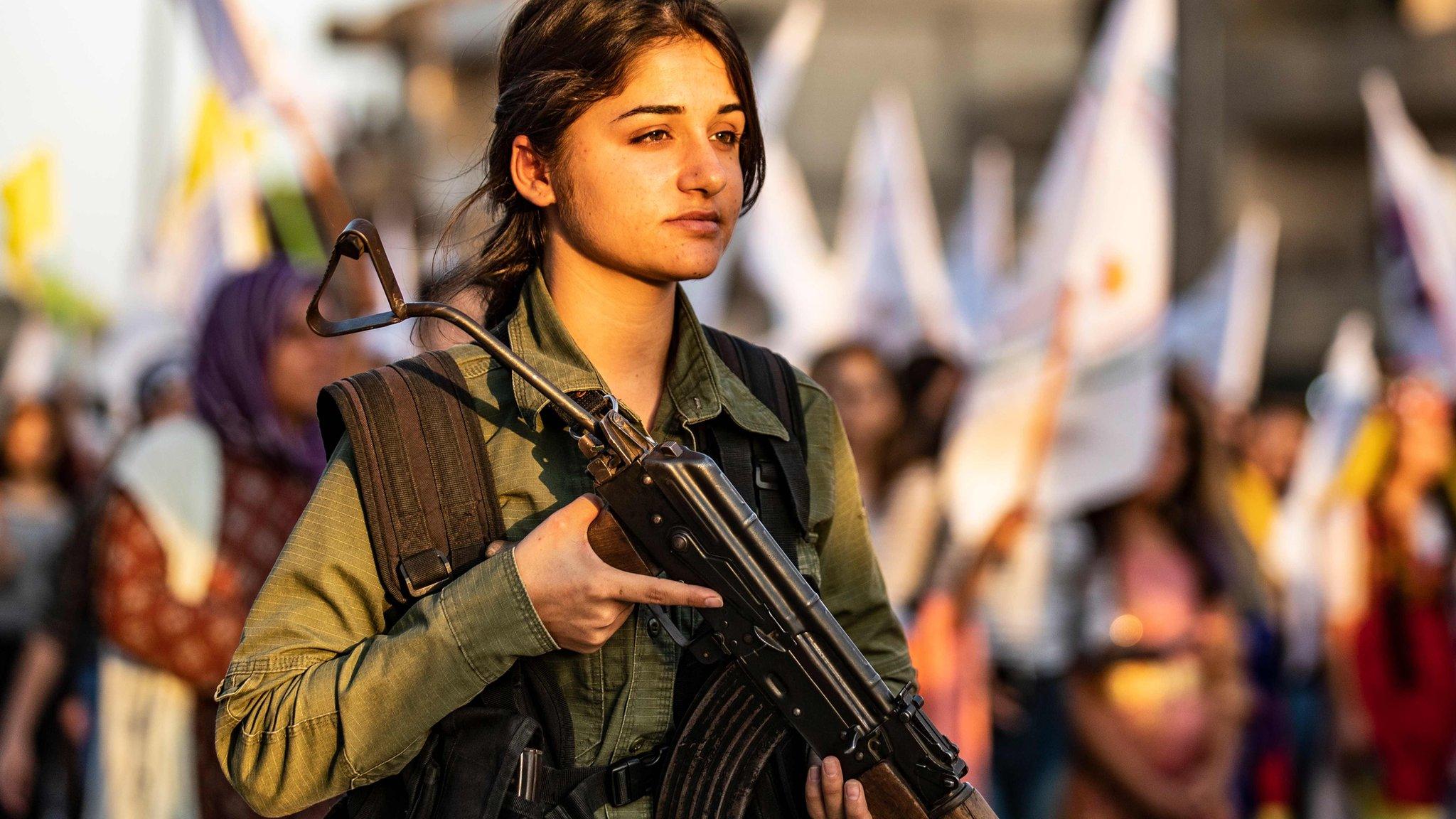Turkey-Syria border: Kurds bitter as US troops withdraw
- Published
US military vehicles were filmed moving away from the border
US troops have begun withdrawing from positions in northern Syria, paving the way for a Turkish operation against Kurdish fighters in the border area.
Kurdish-led forces have until now been a key US ally in Syria, where they helped defeat the Islamic State group, but Turkey regards them as terrorists.
The main Kurdish-led group called the surprise US move a "stab in the back".
But President Donald Trump defended the withdrawal, saying it was time "to get out of these ridiculous Endless Wars".
The pullout represents a significant shift in US foreign policy and goes against the advice of senior officials in the Pentagon and state department. The White House said on Sunday US troops were stepping aside for an imminent Turkish operation.
Turkish President Recep Tayyip Erdogan said Turkey's aim was to combat Kurdish fighters in the border area and to set up a "safe zone" for Syrian refugees currently living in Turkey.
US Republican Senator Lindsey Graham, a close ally of the president, called the announcement a "disaster in the making", saying he would introduce a Senate resolution opposing the decision and calling for it to be reversed.
What did the White House say?
In a statement issued late on Sunday after a phone call between Mr Trump and Mr Erdogan, the White House said Turkey would "soon be moving forward with its long-planned operation into northern Syria".
It added: "The United States Armed Forces will not support or be involved in the operation, and United States forces, having defeated the Isis territorial 'Caliphate', will no longer be in the immediate area."
In a series of tweets defending the decision on Monday,, external President Trump said the US had "got deeper into battle with no aim in sight" and that "Turkey, Europe, Syria, Iran, Iraq, Russia and the Kurds will now have to figure the situation out".
Allow X content?
This article contains content provided by X. We ask for your permission before anything is loaded, as they may be using cookies and other technologies. You may want to read X’s cookie policy, external and privacy policy, external before accepting. To view this content choose ‘accept and continue’.
He later said he would "totally destroy and obliterate" Turkey's economy, external if the country did "anything that I, in my great and unmatched wisdom, consider to be off limits".
The White House also said Turkey would take over responsibility for IS fighters captured by Kurdish forces over the past two years. More than 12,000 suspected IS members are in Kurdish-controlled camps south of Turkey's planned "safe zone", and at least 4,000 of them are foreign nationals.

US allies betrayed

This decision risks a recasting of alliances in Syria. The Kurds may be forced to seek an accommodation with the Syrian government. The potential chaos could facilitate a resurgence of IS. Indeed, the US pullback of its forces from the border area may herald the full withdrawal of troops from Syria that Mr Trump has long wanted.
It marks a betrayal of Washington's Kurdish allies, a betrayal that many other countries in the region will note with alarm.
Both the Saudis and the Israelis are coming to realise that Mr Trump's robust rhetoric is rarely matched by actions.
Last month the Syria Study Group, a bipartisan body commissioned by Congress, stated in its final report that the US still has significant security interests in Syria and retains some policy levers with which to influence events there. But that is clearly not Present Trump's view.

What has the reaction been?
A spokesman for the Kurdish-led Syrian Democratic Forces (SDF) - which occupy former IS territory in north-eastern Syria - strongly condemned the move, saying there were "assurances from the US that it would not allow any Turkish military operations against the region."
"The [US] statement was a surprise and we can say that it is a stab in the back for the SDF," Kino Gabriel told Arabic TV station al-Hadath.
Meanwhile, Kurdish TV in northern Iraq said the SDF had put some of its units on alert because the Turkish army had mobilised troops on the border on Monday.
In other reaction:
Brett McGurk, former US special presidential envoy for the coalition against IS, said the announcement demonstrated a "complete lack of understanding of anything happening on the ground"
Former US ambassador to the UN Nikki Haley said the Kurds "were instrumental in our successful fight against" IS in Syria and that "leaving them to die [was] a big mistake"
UN humanitarian chief in Syria Panos Moumtzis said aid workers were "preparing for the worst" if fighting breaks out in north-eastern Syria
What is Turkey planning?
Mr Erdogan's office said he and President Trump had spoken about Turkey's plan to set up a "safe zone, external" in north-eastern Syria, and that the 20-mile (32km) zone was needed to combat "terrorists".
Turkey considers the Kurdish YPG militia - the dominant force in the SDF alliance - an extension of the banned Kurdistan Workers' Party (PKK), which has fought for Kurdish autonomy in Turkey for three decades.
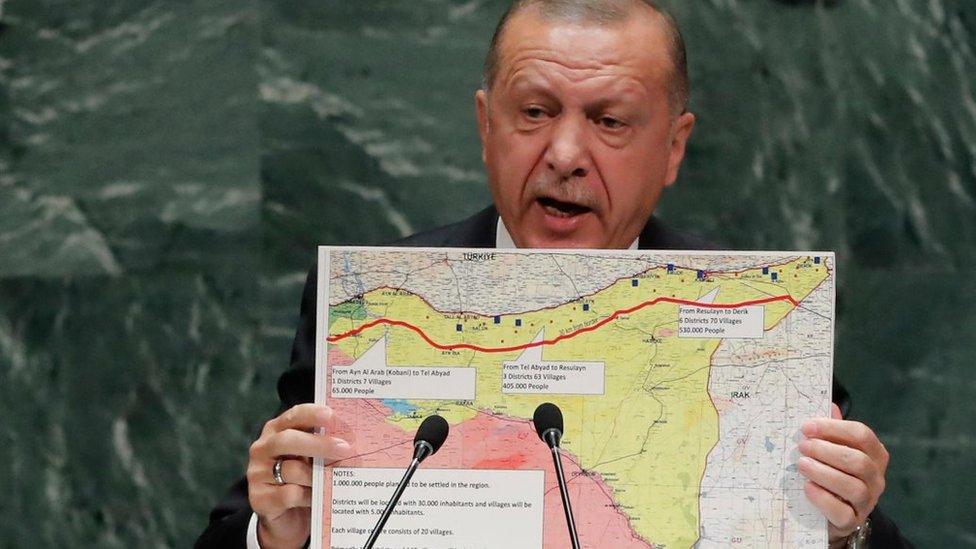
President Erdogan showed a map of the proposed zone at the UN General Assembly last month
Turkey hosts more than 3.6 million Syrians who fled the civil war that began in 2011, and wants to move up to two million of them into the zone.
In his call with Mr Trump, President Erdogan also expressed his "frustration over the US military and security bureaucracy's failure" to implement an agreement reached in August about the zone, his office said.
A young face destroyed by war: The impact of an air strike one year on

How large will the Turkish operation be?
Analysis by Quentin Sommerville, Middle East correspondent
Invasion or incursion? That is the uppermost question about Turkish action in north-eastern Syria. Initial indications would point to a limited incursion by Turkey along a 60-mile (100km) stretch between the towns of Tal Abyad and Ras al-Ain.
It is a sparsely populated, mostly Arab area. American forces have already withdrawn from four border positions there, but they have not withdrawn from any positions further east and west.
Similarly, the big Kurdish towns and cities along the border - Kobane, Qamishili and others - remain calm. There has been no call for people to evacuate. Prisons full of IS foreign fighters are further south and will remain under Kurdish control - if Turkey restricts itself to a limited assault.
However, it may not stop there: regime sources are calling it "a full incremental invasion". So British and American special forces have for months been making preparations for a partial or full withdrawal from the area if the situation escalates.


- Published2 February 2018
- Published23 March 2019
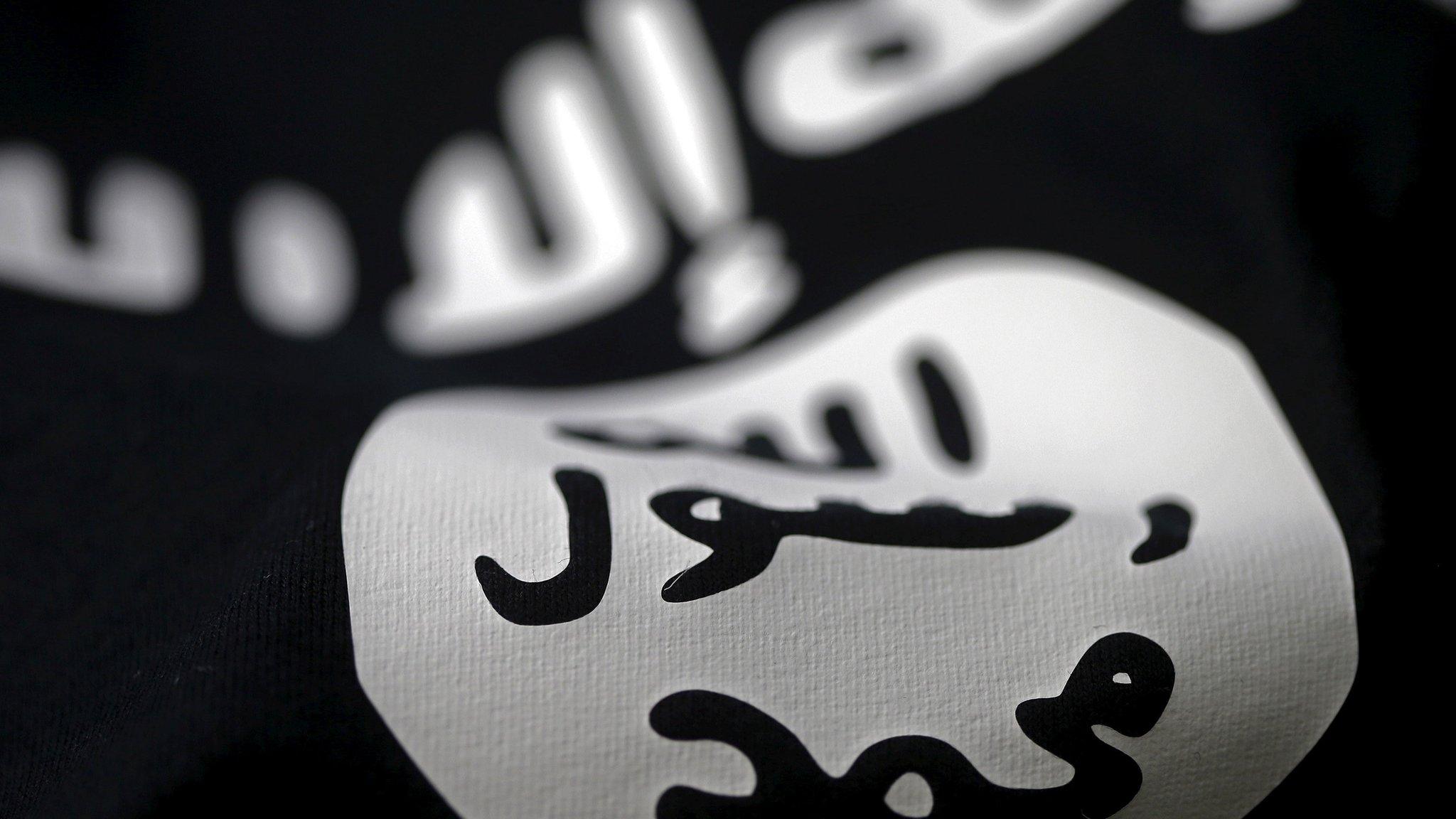
- Published16 September 2019
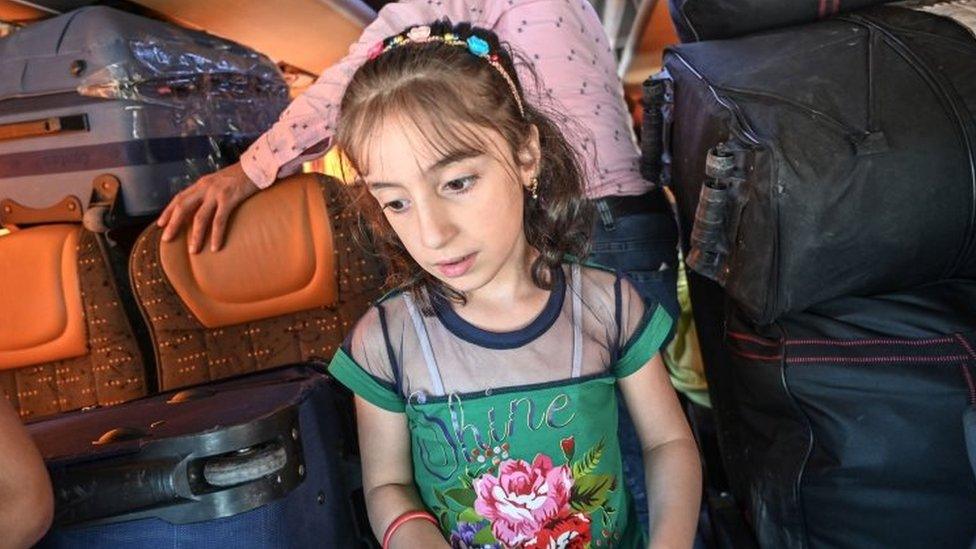
- Published20 August 2019
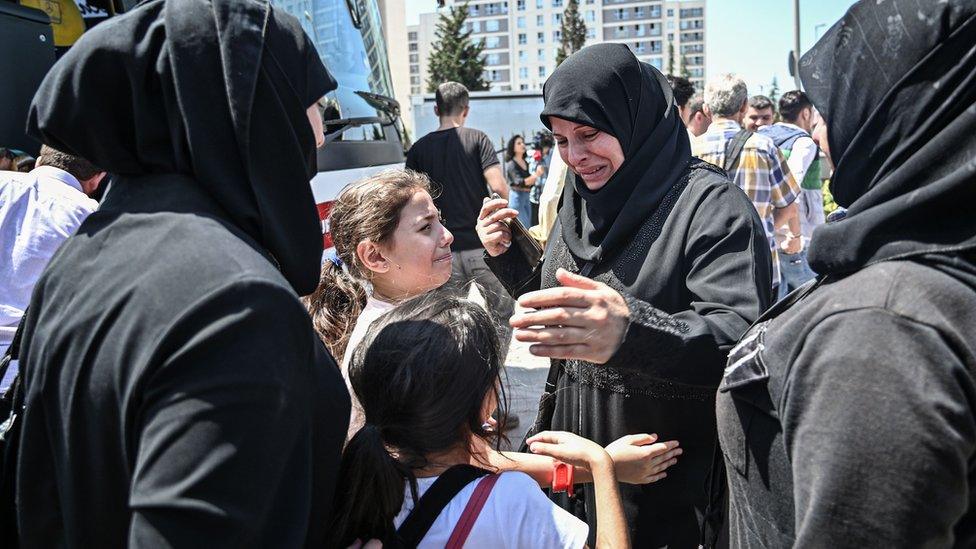
- Published27 August 2019
